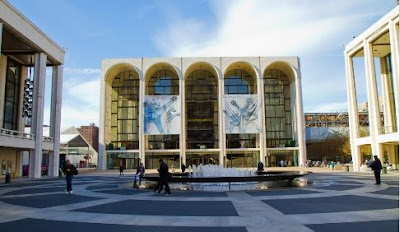Iwalked New York City’s Former Home Of Thomas Jefferson - Thomas Jefferson only called New York City his home for a rather short period lasting six months in total (March-September 1790). During this time he served as the Secretary of State under newly appointed President George Washington.
His first residence during this period was a small space rented for one hundred pounds a year from two grocers by the names of Robert and Peter Bruce at 3 Front Street. He voiced his displeasure at the availability of space during this time in a letter to his daughter Martha in which he was quoted as, “I find it difficult to procure a tolerable house here.” He remained here a very short period of time as he later moved to a locale on Broadway before “settling” for a small home at 57 Maiden Lane in June.
It was here that perhaps one of the most significant negotiations in the history of our young nation occurred. Intent on moving our Nation’s capitol Jefferson organized a dinner with his friend James Madison to convince the one man who held sufficient sway within Congress to potentially block such a proposal—Alexander Hamilton. Jefferson’s opposition to New York was not only based upon its cramped quarters but also largely due to his distaste for its largest proponent, Mr. Hamilton.
On June 20, 1790 Jefferson and Madison concocted a careful negotiation to ensure both parties achieved their ultimate objective. Jefferson and Madison wanted to move the nations Capitol south and Hamilton, at the time, was actively promoting the creation of a national bank. With both parties holding such significant power to block either initiative the two sides agreed to at least not impede the vote on the other. This dinner agreement was later known to history as the derivation of the Compromise of 1790. Hamilton ultimately achieved his National Bank via a charter approved on February 25, 1791. And Jefferson received his wish to move the nation’s headquarters to a space along the Potomac after a temporary 10 year residency in Philadelphia.
In reference to Mr. Jefferson’s New York residency, upon his successful negotiations in June, he planned his return home to Virginia. By September he had moved out of 57 Maiden Lane.
 |
| Thomas Jefferson |
It was here that perhaps one of the most significant negotiations in the history of our young nation occurred. Intent on moving our Nation’s capitol Jefferson organized a dinner with his friend James Madison to convince the one man who held sufficient sway within Congress to potentially block such a proposal—Alexander Hamilton. Jefferson’s opposition to New York was not only based upon its cramped quarters but also largely due to his distaste for its largest proponent, Mr. Hamilton.
On June 20, 1790 Jefferson and Madison concocted a careful negotiation to ensure both parties achieved their ultimate objective. Jefferson and Madison wanted to move the nations Capitol south and Hamilton, at the time, was actively promoting the creation of a national bank. With both parties holding such significant power to block either initiative the two sides agreed to at least not impede the vote on the other. This dinner agreement was later known to history as the derivation of the Compromise of 1790. Hamilton ultimately achieved his National Bank via a charter approved on February 25, 1791. And Jefferson received his wish to move the nation’s headquarters to a space along the Potomac after a temporary 10 year residency in Philadelphia.
In reference to Mr. Jefferson’s New York residency, upon his successful negotiations in June, he planned his return home to Virginia. By September he had moved out of 57 Maiden Lane.
- Website: http://www.monticello.org/site/research-and-collections/new-york-city
- Address: 57 Maiden Lane, New York City, NY
- Cost: Free


